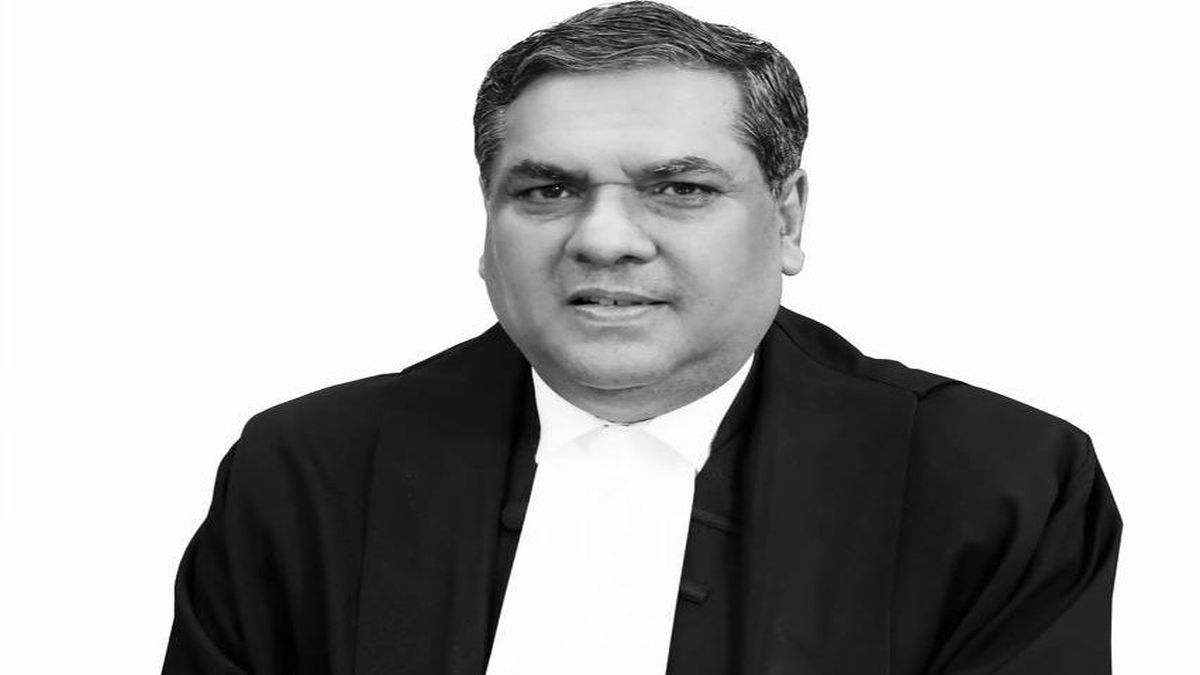Chief Justice of India DY Chandrachud will retire on November 10, setting the stage for the 51st chief justice of the country. And as per norms, CJI Chandrachud has written to the Union Law Ministry, naming Justice Sanjiv Khanna, the second-most senior judge of the Supreme Court, as his successor.
If the Union Government accepts CJI Chandrachud’s recommendation, Justice Khanna will be the 51st Chief Justice of India. As CJI, Justice Khanna will have a term of nearly six months until May 13, 2025.
Let’s take a closer look at who is Justice Sanjiv Khanna, man poised to be the head of the apex court in the country.
Before becoming Justice Khanna
Justice Khanna, related to legendary judge Hans Raj Khanna, who resigned from the Supreme Court amid Emergency, was born on May 14, 1960. He pursued a law degree in Delhi University and in 1983 enrolled as a lawyer with the Bar Council of Delhi.
At the beginning of his career, he practised at the district courts at Tis Hazari complex and later moved to the High Court of Delhi and tribunals. His field of expertise as a lawyer was constitutional law, direct taxes, arbitration and commercial matters, company law, land laws, environment and pollution laws and medical negligence.
Some of his early colleagues note that Khanna was adept and effective on taxation law, which also led him to enjoy a long tenure as the Senior Standing Counsel for the Income Tax Department. He also appeared as an Additional Public Prosecutor and an amicus curie in criminal cases at the Delhi High Court.
Impact Shorts
More ShortsFrom lawyer to Supreme Court judge
In 2005, he was elevated as an additional judge of the Delhi High Court and a year later, he was made a permanent judge in 2006. As judge of Delhi High Court, Justice Khanna also held the position of chairman/judge-in-charge, Delhi Judicial Academy, Delhi International Arbitration Centre and the District Court Mediation Centres.
On January 18, 2019, Justice Khanna was elevated to the Supreme Court. His elevation had raised some eyebrows as he was among the few who were elevated to the apex court before being made a chief justice of any high court.
While serving as a judge in the Supreme Court, Justice Khanna also held the post of chairman, the Supreme Court Legal Service Committee from June 2023 to December 2023. At present, he serves as the Executive Chairman of National Legal Services Authority and is a member of the Governing Counsel of the National Judicial Academy, Bhopal.
Notable verdicts by Justice Khanna
In his tenure as judge in the Supreme Court, Justice Khanna has been part of some important verdicts in the country.
He was part of the five-judge Constitution Bench of CJI Ranjan Gogoi, (CJ) and NV Ramana, DY Chandrachud and Deepak Gupta who upheld the 2010 landmark judgment of the Delhi High Court bringing the Chief Justice of India’s office under Right to Information.
Justice Khanna was also part of the bench that ruled in favour of the government in the matter of challenging the Centre’s decision to abrogate Article 370. He also held that the Supreme Court can have the discretion to dissolve the marriage by passing a decree of divorce by mutual consent on the grounds of ‘irretrievable breakdown’ by invoking powers under Article 142.
Earlier in the year, he was part of the ruling that declared the Electoral Bond Scheme unconstitutional. He argued that the scheme violated the right to information, as donor identities were “asymmetrically known” to bank officers, emphasising the importance of transparency in electoral funding.
In April, he had also dismissed a plea for cross-verification of the votes cast in electronic voting machines (EVMs) with Voter Verifiable Paper Audit Trail (VVPAT). In his ruling, he championed the sanctity of EVMs and trust in Election Commission of India (ECI).
Justice Khanna was also one of the judges that granted interim bail to former Delhi Chief Minister Arvind Kejriwal in excise policy case to campaign amid the Lok Sabha elections. Notably, a bench led by him had refused to grant bail to former Delhi Deputy CM Manish Sisodia in October last year. He also denied bail to BRS leader and Telangana MLC K Kavitha in the liquor policy case in March 2023.
With inputs from agencies
)